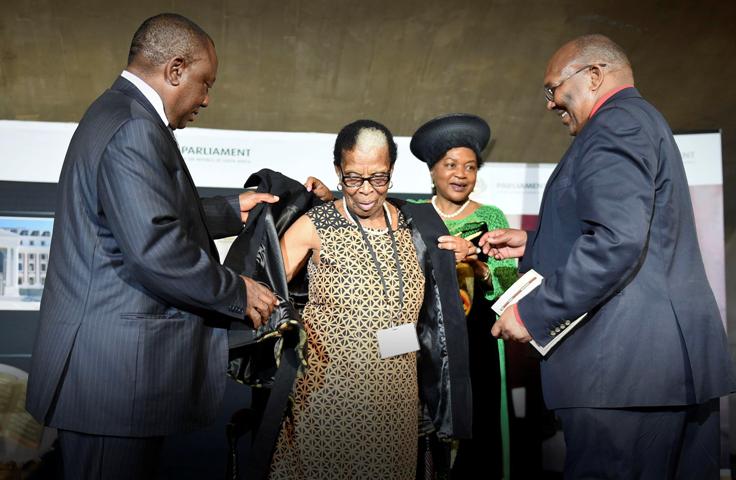Charlotte Maxeke remembered as strong woman this Freedom Month
Dr Musawenkosi Donia Saurombe, from the Charlotte Mannya-Maxeke Institute (CMMI), said Maxeke had made an enormous contribution to the improvement of people’s lives, particularly women.

- Country:
- South Africa
Struggle stalwart Charlotte Maxeke has this Freedom Month, been remembered as a strong and selfless woman.
On Wednesday, ahead of the annual Freedom Day commemoration, a virtual panel discussion was organised by the Government Communication and Information System (GCIS) to mark the life and times of Maxeke as a freedom fighter.
The panellists described Maxeke as a woman who was always determined to work for others.
Dr Musawenkosi Donia Saurombe, from the Charlotte Mannya-Maxeke Institute (CMMI), said Maxeke had made an enormous contribution to the improvement of people’s lives, particularly women.
Maxeke was selfless. “Charlotte continued to be a selfless character. She was a pioneer.”
Saurombe said it was important for women to follow in Maxeke’s footsteps and emulate her determination to challenge the status quo.
The Charlotte Mannya-Maxeke Institute (CMMI) is a family initiative born out of the desire to preserve, promote, elevate and leverage the legacy left behind by Mme Charlotte.
Maxeke was a South African religious leader, social and political activist; she was the first black woman to graduate with a university degree in South Africa with a BSc from Wilberforce University Ohio in 1903, as well as the first black African woman to graduate from an American university.
Born on 7 April 1871, she was the only woman who attended the launch of the South African Native National Congress (SANNC) in Bloemfontein in 1912.
She witnessed the 1878-1879 last Frontier war, the battle of Isandlwana in 1879, the battle of Adwa in Ethiopia, 1896, the Pan African Congress and the Bhambatha Rebellion of 1906.
She and other selfless women of her generation fought against oppression at a time when such defiance was met with unrelenting force.
This year marks the 150th anniversary of the struggle icon and Freedom Month is being celebrated under the theme “The Year of Charlotte Maxeke: the Meaning of Freedom under COVID-19”.
Government has called on everyone to use the Freedom Month and Freedom Day celebrations to pull together and continue to fight COVID-19 while striving for greater inclusion and social cohesion.
As the government has declared 2021 the year to remember Maxeke, Dr Saurombe said the CMMI had planned a number of programmes and activities to commemorate the life and times of the struggle icon.
Zubeida Jaffer, an award-winning South African journalist and activist, is the author of ‘Beauty of the Heart: The Life and Times of Charlotte Mannya Maxeke’.
She wrote the book over a period of three years.
“I believe more could be written about Charlotte. There are many big moments that people can read about her,” Jaffer said.
Jaffer told other panellists that Maxeke used to teach herd boys at night while continuing to do her other activities. “Often it is the small things that we make that impact on other people’s lives,” she said.
Reshoketswe Mosuwe, the President of the 19th Episcopal District Women’s Missionary Society A.M.E Church, said she was humbled and proud to be following in Maxeke’s footsteps.
“We believe that she still lives in us,” Mosuwe said.
Mosuwe was invited to speak about the life and times of Maxeke as a church leader and as a spiritual woman in the A.M.E church.
Maxeke was greatly influenced by AMEC.
She became the organiser of the Women’s Mite Missionary Society in Johannesburg and then moved to the Polokwane (then Pietersburg) area. There she joined her family in Dwaars River, under Chief Ramakgopa, who gave her money to start a school.
With regards to gender-based violence, Mosuwe called on everyone to fight the scourge. “She was a fighter and fighting gender-based violence is part of honouring her,” she said.
(With Inputs from South African Government Press Release)










